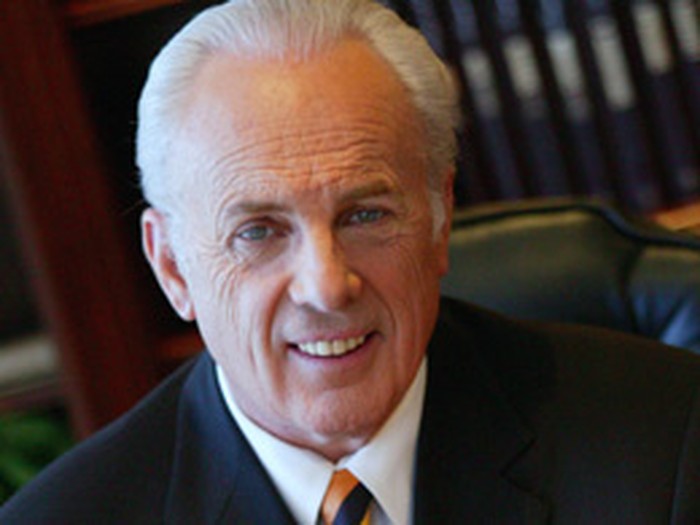Should Fallen Pastors Be Restored?
- John MacArthur
- Published Jun 18, 2004

It has always saddened me over the years as I've watched church leaders bring a reproach on the church of Jesus Christ. What's shocking to me is how frequently Christian leaders sin grossly, then step back into leadership almost as soon as the publicity dies away.
Some time ago I received a cassette tape that disturbed me greatly. It was a recording of the recommissioning service of a pastor who had made national news by confessing to an adulterous affair. After little more than a year of “counseling and rehabilitation,” this man was returning to public ministry with his church's blessing.
That is happening everywhere. Restoration teams-equipped with manuals to instruct the church on how to reinstate their fallen pastor-wait like tow-truck drivers on the side of the highway, anticipating the next leadership “accident”. Our church has received inquiries wondering if we have written guidelines or a workbook to help restore fallen pastors to leadership. Many no doubt expect that a church the size of ours would have a systematic rehabilitation program for sinning leaders.
Gross sin among Christian leaders is a signal that something is seriously wrong with the church. But an even greater problem is the lowering of standards to accommodate a leader's sin. That the church is so eager to bring these men back into leadership is a symptom of rottenness at the core.
Some have claimed that a leader's failure makes him more effective in shepherding fallen people. That is ludicrous. Should we drag the bottom of sin's cesspool for the most heinous sinners to lead the church? Are they better able to understand the sinner? Certainly not! Our pattern for ministry is the sinless Son of God. The church is to be like Him and her leaders are to be our models of Christlikeness.
We must recognize that leadership in the church cannot be regarded lightly. The foremost requirement of a church leader is that he be above reproach (1 Timothy 3:2, 10; Titus 1:7). That is a difficult prerequisite, and not everyone can meet it.
There are some sins that irreparably shatter a man's reputation and disqualify him from a ministry of leadership forever. Even Paul, man of God that he was, said he feared such a possibility. In 1 Corinthians 9:27 he says, “I discipline my body and make it my slave, so that, after I have preached to others, I myself will not be disqualified.”
When referring to his body, Paul obviously had sexual immorality in view. In 1 Corinthians 6:18 he describes it as a sin against one's own body-sexual sin is in its own category. Certainly it disqualifies a man from church leadership since he permanently forfeits a blameless reputation as a one-woman man (Proverbs 6:33; 1 Timothy 3:2).
Where did we get the idea that a year's leave of absence and some counseling can restore integrity to someone who has squandered his reputation and destroyed people's trust? Certainly not from the Bible. Trust forfeited is not so easily regained. Once purity is sacrificed, the ability to lead by example is lost forever. As my friend Chuck Swindoll once commented when referring to this issue-it takes only one pin to burst a balloon.
What about forgiveness? Shouldn't we be eager to restore our fallen brethren? To fellowship, yes. But not to leadership. It is not an act of love to return a disqualified man to public ministry; it is an act of disobedience.
By all means we should be forgiving. But we cannot erase the consequences of sin. I am not advocating that we “shoot our wounded.” I'm simply saying that we shouldn't rush them back to the front lines, and we should not put them in charge of other soldiers. The church should do everything possible to minister to those who have sinned and repented. But that does not include restoring the mantle of leadership to a man who has disqualified himself and forfeited the right to lead. Doing so is unbiblical and lowers the standard God has set.
So why is the contemporary church so eager to be tolerant? I'm certain a major reason is the sin and unbelief that pervade the church. If casual Christians can lower the expectations on their leadership, they will be much more comfortable with their own sin. With lower moral standards, the church becomes more tolerant of sin and less tolerant of holiness. The “sinner-friendly” church is intolerable to God-that is a frightening condition.
Conservative Christians have for most of the previous century focused on the battle for doctrinal purity. And that is good. But we are losing the battle for moral purity. Some of the worst defeats have occurred among our more visible leaders. The church cannot lower the standard to accommodate them. We should hold it higher so we can regain purity. If we lose here, we have utterly failed, no matter how orthodox our confession of faith. We can't win if we compromise the biblical standard of moral purity.
What should you do in the current crisis? Pray for your church's leaders. Keep them accountable. Encourage them. Let them know you are following their godly example. Understand that they are not perfect, but continue nonetheless to call them to the highest level of godliness and purity. The church must have leaders who are genuinely above reproach. Anything less is an abomination.
Adapted from The Master's Plan for the Church, © 1991 by John MacArthur. All rights reserved.




















